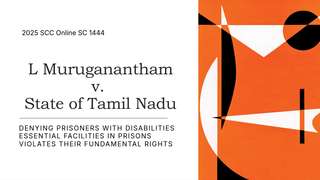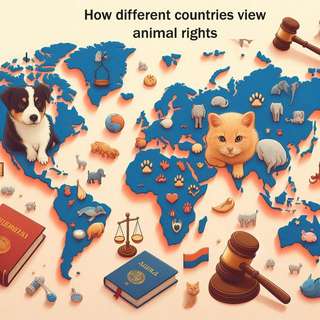Grand Ethiopian Renaissance Dam (GERD) Dispute under International Law
Grand Ethiopian Renaissance Dam [1]
Structure
Facts
GERD is being constructed near Sudan border region in Ethiopia. It is expected to have a capacity of 74 billion cubic meters of water, which makes it the largest hydroelectric power project in Africa. This dam is being built on Blue Nile, a tributary of Nile River.
Ethiopia views GERD as significant in its economic development and poverty reduction goals. It seeks to generate over 5,000 MW of electricity to power its domestic grid and export surplus energy to neighbouring countries, boosting regional integration and development.
Ethiopia began the GERD project in 2011 and started the first stage of reservoir filling in 2020, completing the third phase in 2023. Each filling stage has resulted in protests from Egypt and Sudan.
Egypt relies on the Nile for 90% of its freshwater supply and considers it essential for agriculture, drinking water, and energy production, etc. Egypt alleges that the dam will disrupt water flow, particularly during droughts or the reservoir’s filling phase.
Sudan, while concerned about potential water shortages, Sudan also sees GERD’s benefits in regulating the Nile’s seasonal flooding and providing affordable electricity. Though Sudan may seem in favour of the project but is at the same time critical of it.
Parties to the Dispute: Ethiopia, Egypt, and Sudan
Issues
River Water Allocation and Sharing – Egypt believes that this project is threat to its historical rights over water
Dam Filling – The dam filling process has been controversial. As Egypt and Ethiopia believes the dam filling should be slower and regulated
Dam Operation – Egypt and Sudan believe that the dam’s operation should be overseen by all the parties involved for transparency and mutual interest.
Lack of Binding Agreement to govern river among countries
Applicable Rules and Principles of International law
1929 Anglo-Egyptian Treaty: Granted Egypt the right to veto projects on the Nile.
1959 Nile Waters Agreement: Allocated 55.5 billion cubic meters of the Nile’s annual flow to Egypt and 18.5 billion to Sudan, excluding Ethiopia.
Ethiopia was not a party to the above agreements and has long rejected them as colonial-era relics.
UN Convention on the Law of the Non-Navigational Uses of International Watercourses
Art. 5 - Equitable and reasonable utilization and participation, mandates that all riparian states
Art. 7 – Obligation not to cause Significant Harm, requires states to take all appropriate measures to prevent causing significant harm to other riparian states
Obligation to Cooperate - This principle obligates states to engage in good-faith negotiations and regularly exchange information on planned measures that might have transboundary impacts.
No Significant Harm – A state has an obligation to avoid activities that cause harm to environment of another state[2]
Environmental Protection Principle[3]
Present Status of the Dispute
Ethiopia completed the GERD’s third reservoir filling in September 2023, enabling partial electricity generation.
Egypt remains critical about reduced Nile water flow impacting its water security and has sought international and regional support, including strengthening military ties with neighbour of Ethiopia like Somalia.
Ethiopia asserts its sovereign right to develop GERD and calls for constructive dialogue while dismissing Egypt’s aggressive posturing.[4]
The African Union (AU) and the United Nations Security Council (UNSC) have facilitated negotiations, but a binding agreement has not been reached.
Ethiopia’s strategy is to build alliances through electricity export agreements.
Egypt-Somalia Alliance I seen as a countermeasure to Ethiopia’s actions. Further, deteriorating the trust.
Despite negotiations, the dispute remains unsolved, risking further escalation without a binding agreement on water sharing and dam operation.
Existing Dispute Settlement Mechanism
Negotiations: Bilateral and trilateral negotiations have been the primary approach to resolving the GERD dispute. African Union has led recent rounds of negotiations, emphasizing African solutions to African problems. United States and World Bank had mediated earlier discussions in 2019-2020 but failed to lead to a binding agreement.
Ultimately, while negotiations led to some technical agreements, it has failed to resolve the dispute, particularly regarding binding operational rules.
United Nations Security Council (UNSC)
Egypt and Sudan have raised the GERD issue at the UNSC, framing it as a potential threat to regional peace and security. The UNSC has emphasized the need for peaceful negotiations under African Union. It refrains from direct intervention, as water dispute is primarily non-security issues.
African Union (AU) Mediation: African Union has been the primary mediator since 2020.It stand along the lines of adherence to principles of equitable utilization and no significant harm. Ethiopia does not agree to binding agreements, emphasizing sovereign rights. Egypt and Sudan demand enforceable commitments on reservoir filling and operation.
Regional and Bilateral Dialogue: Egypt and Sudan have held bilateral discussions to consolidate their positions against Ethiopia’s unilateral actions. Ethiopia has asked support from African states, leveraging the African union framework to counter Egypt and Sudan’s claims.
Diplomatic Intervention: Arab League and the European Union, have offered to mediate or support negotiations. The Arab League supports Egypt and Sudan, while the EU promotes a balanced, cooperative resolution.
Solutions to resolve the dispute
I have seen that the countries have gone with multiple dispute settlement mechanism, like negotiation, mediation, diplomatic intervention and bilateral talks. Now these did not lead to any solution.
Ethiopia’s unilateral reservoir filling and operation have undermined negotiations.
A key solution lies in negotiating a binding agreement that specifies the rules for the dam’s filling and operation, equitable water-sharing arrangements, and mechanisms to address drought. This agreement will reduce mistrust, with the involvement of neutral mediators such as African Union.
Another approach is establishing a Joint Management Committee, which allows changes to dam operations based on real-time environmental conditions. This solution promotes flexibility and encourages the continuous exchange of data, ensuring cooperation among the parties. Joint monitoring could oversee GERD’s operation, ensuring transparency and compliance with agreed terms. Such a body would regularly report on water flow, reservoir levels, and other technical aspects to address concerns over unilateral actions.
Regional cooperation on water resource management is needed, due to a prior lack. This involves creating a Nile water-sharing agreement, consisting of all riparian states. Additionally, conducting comprehensive environmental impact assessments reviewed by independent experts would address concerns about ecological harm to the Nile ecosystem.
If negotiations fail, mediation and arbitration under the International Court of Justice could provide a neutral and authoritative resolution. However, arbitration would require the consent of all parties and could be time-consuming. Alternatively, offering international incentives and development support, such as financial aid or infrastructure investments tied to compliance, might encourage compromise and cooperation. But this would require another country to intervene.
Among these solutions, regional cooperation appears the most sustainable. By focusing on mutual benefits, it reduces the perception of GERD as a threat and promotes long-term stability through integrated resource management. Though a binding agreement addresses immediate concerns, cooperation aligns with principles of equitable utilization, sustainable development, and peaceful dispute resolution.
Critical Analysis
The GERD dispute highlights the complexities of transboundary water resource management in the light of national interest. Ethiopia views GERD as a critical project for addressing its energy, poverty, and economic development, utilising its right to utilize its natural water resources. Moreover, Egypt sees the Nile as a lifeline, with 97% of its freshwater derived from the river, and fears the dam could reduce water flow, causing harm to agriculture security. Sudan recognises the dam’s potential to reduce flooding while expressing concerns over Ethiopia’s unilateral actions and transparency.
Efforts in resolving the dispute, including African Union’s mediation and to the United Nations Security Council, have faced significant challenges. The absence of a binding water-sharing agreement and Ethiopia, Egypt, and Sudan’s non-ratification of the 1997 UN Watercourses Convention have left negotiations to a non-binding state. Unilateral actions like Ethiopia’s reservoir filling, have further eroded trust among the parties.
Despite the deadlock, GERD has scope for regional cooperation. Its capacity to generate renewable energy could benefit the region, but this requires a comprehensive agreement balancing Ethiopia’s developmental needs with Egypt and Sudan’s water security concerns. A regional framework incorporating joint monitoring, adaptive management, and equitable resource sharing is required for a solution. Such cooperation would transform GERD from a source of conflict into a milestone for collective prosperity, addressing both immediate and long-term challenges while strengthening regional stability.
[1] Gerd: Ethiopia hits out at Egypt as Nile dam row escalates, https://www.bbc.com/news/articles/cp3dgx36gn5o (last visited Dec 25, 2024); Could Egypt and Ethiopia’s tensions escalate into a war? – DW – 09/14/2024, dw.com, https://www.dw.com/en/could-egypt-and-ethiopias-tensions-escalate-into-a-war/a-70211192 (last visited Dec 25, 2024).
[2] Pulp Mills on the River Uruguay (Argentina v. Uruguay), Judgment, 2010 I.C.J. 14, ¶ 101 (April 20).
[3] Report of the United Nations Conference on the Human Environment, U.N. Doc. A/CONF.48/14/Rev.1 (June 16, 1972); Report of the United Nations Conference on Environment and Development, U.N. Doc. A/CONF.151/26/Rev.1 (Aug. 12, 1992).
[4] G.A. Res. 1803 (XVII), Permanent Sovereignty over Natural Resources (Dec. 14, 1962).


Comments